
“In the west almost all Spain had been subjugated, except that part which adjoins the cliffs where the Pyrenees end and is washed by the nearer waters of the Ocean. Here two powerful nations, the Cantabrians and the Asturians lived in freedom from the rule of Rome.”—Second-century a.d. Roman historian Florus, Epitome of Roman History
By the final decades of the first-century b.c., Rome had grown from a small city-state on the Italian Peninsula into a vast empire whose territories completely encompassed the shores of the Mediterranean Sea. Its possessions extended inland as well, as much of Western Europe had succumbed to the relentlessly advancing Roman armies. Yet one small region remained impervious to Roman rule. This was a narrow swath of mountainous terrain wedged between the Northern Meseta and the Bay of Biscay, home to two Celtic tribes: the Cantabrians and the Asturians.
Rome began its conquest of Iberia in 218 b.c., but by the time Augustus (r. 27 b.c.–a.d. 14) became emperor nearly two centuries later, this geographical pocket alone remained unconquered. In matters of war, the Romans did not suffer failure lightly, and in 26 b.c., they finally launched what would prove to be a decisive campaign to annex the territory. As part of a violent 10-year conflict now called the Cantabrian Wars, Roman legions camped in front of the walls of a site known today as Monte Bernorio. Situated along the southern border of the Cantabrians’ territory, this indigenous stronghold was vital to the continued independence of this notoriously bellicose people, as it safeguarded the roads and the mountain passes that led into their heartland. In the end, it would fall, and, so in turn would the rest of free Iberia.
この記事は Archaeology の September/October 2020 版に掲載されています。
7 日間の Magzter GOLD 無料トライアルを開始して、何千もの厳選されたプレミアム ストーリー、9,000 以上の雑誌や新聞にアクセスしてください。
すでに購読者です ? サインイン
この記事は Archaeology の September/October 2020 版に掲載されています。
7 日間の Magzter GOLD 無料トライアルを開始して、何千もの厳選されたプレミアム ストーリー、9,000 以上の雑誌や新聞にアクセスしてください。
すでに購読者です? サインイン
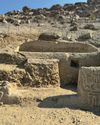
ORIGINS OF PERUVIAN RELIGION
While investigating looters' holes at the site of La Otra Banda in northern Peru's Zaña Valley, archaeologist Luis A. Muro Ynoñán of the Field Museum and the Pontifical Catholic University of Peru spotted carved blocks around seven feet below the surface.
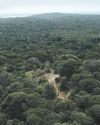
ISLAND OF FREEDOM
Many of the enslaved Africans sent to Brazil beginning in 1549 were from what is now Angola, where one of the most widely spoken languages was Kimbundu.
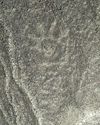
NAZCA GHOST GLYPHS
From the 1940s to the early 2000s, geoglyphs were discovered in the Nazca Desert of southern Peru depicting animals, humans, and other figures at the rate of 1.5 per year.

COLONIAL COMPANIONS
The ancestry of dogs in seventeenth-century Jamestown offers a window into social dynamics between Indigenous people and early colonists.
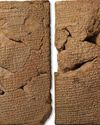
BAD MOON RISING
The British Museum houses around 130,000 clay tablets from ancient Mesopotamia written in cuneiform script between 3200 B.C. and the first century A.D.
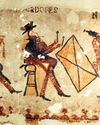
DANCING DAYS OF THE MAYA
In the mountains of Guatemala, murals depict elaborate performances combining Catholic and Indigenous traditions
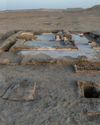
LOST GREEK TRAGEDIES REVIVED
How a scholar discovered passages from a great Athenian playwright on a discarded papyrus
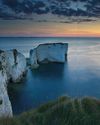
Medieval England's Coveted Cargo
Archaeologists dive on a ship laden with marble bound for the kingdom's grandest cathedrals
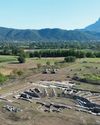
Unearthing a Forgotten Roman Town
A stretch of Italian farmland concealed one of the small cities that powered the empire
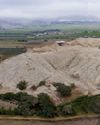
TOP 10 DISCOVERIES OF 2024
ARCHAEOLOGY magazine reveals the year's most exciting finds